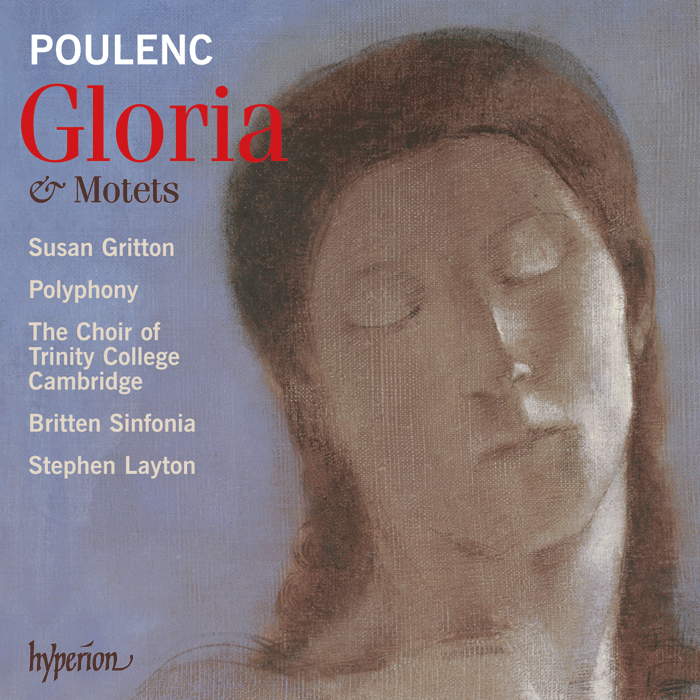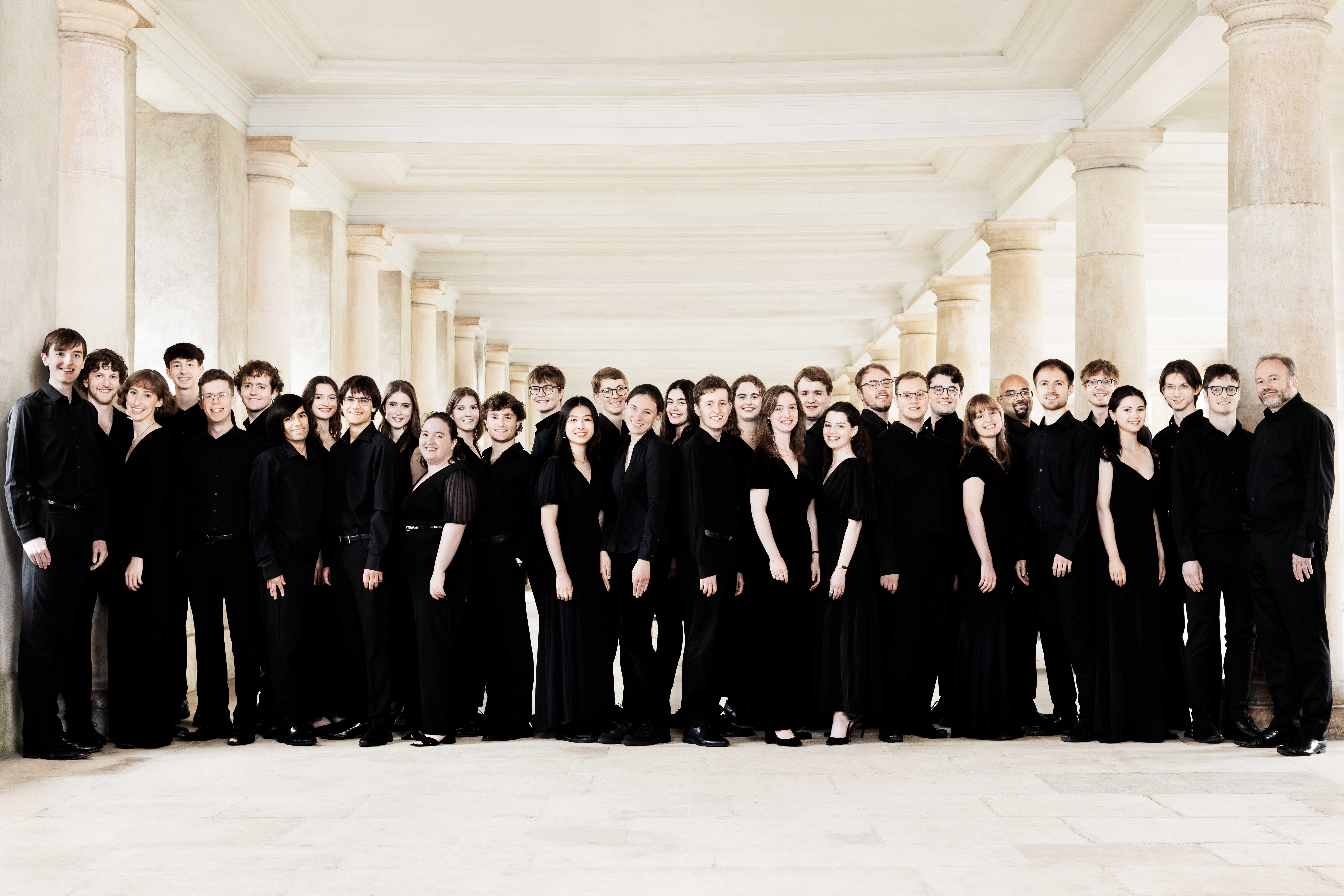Poulenc - Gloria & Motets - Musical Criticism.com
> See recording details...All things considered, Poulenc’s Gloria has fared remarkably well on record, with recent versions by Jansons, Hickox and Tortelier ensuring that the piece has remained a favourite repertoire choice of numerous professional choirs.
But this new addition to the catalogue, excellently performed and recorded, is none the less welcome for that. Conductor Stephen Layton and his choir Polyphony are joined by soprano Susan Gritton, The Choir of Trinity College, Cambridge and the Britten Sinfonia for the twenty-four-minute piece and then offer four a cappella works to complete a fascinating disc.
As Meurig Bowen’s detailed and elegant liner notes explain, a car accident which decapitated the critic Pierre-Octave Ferroud in the Hungarian town of Debrecen in August 1936 reawakened Poulenc’s Catholic faith, long since abandoned from childhood. He went on a pilgrimage to the ancient shrine of the Black Virgin at Rocamadour and, having ‘pondered on the fragility of the spirit’, the composer spent a large proportion of his remaining three decades writing sacred works. Even his major operatic masterpiece, Dialogues des Carmélites, takes a religious order as its subject matter.
Yet as the Gloria proves, Poulenc was still inclined to allow the jazzed-up harmonies and compositional procedures of his secular works to infiltrate his religious music. The opening movement, ‘Gloria in excelsis Deo’, starts with a grand gesture and dotted rhythms reminiscent of a baroque fanfare, here played with crisp precision by the Britten Sinfonia; like Handel in Messiah, Poulenc was not afraid to use worldly splendour to enhance his word-setting. The French composer also shared Handel’s inclination to make his music sensuous, even when its message was spiritual: who can resist the long legato lines of the soprano’s solo sections in the ‘Domine deus, rex caelestis’, for instance, especially when sung with such allure by Susan Gritton? The other strength of this piece is the quality of the orchestration, something with which Poulenc often struggled. The ‘Domine Deus, agnus Dei’ is particularly eerie, with solo flute lines over a murky string accompaniment; the way Poulenc introduces the choir very quietly in block harmonies behind the soprano soloist is again chilling.
Layton’s recording comes very close to perfection and certainly represents one of the ‘must-have’ CDs of the year so far. The choral forces are highly responsive to his direction, which is highly expressive within the bounds of a pure English sound. The dynamic contrasts are particularly wide, not least in the opening ‘Gloria’ and the concluding ‘Qui sedes ad dexteram Patris’; the swell in the concluding lines of the former and the control during the a cappella passages of the latter are two of many impressive moments. The lightness of delivery in the ‘Laudamus te’ and the almost ruthless approach to the ‘Domine Fili unigenite’ (punctuated by ritornelli of the ‘Gloria’ music in the orchestra) are likewise striking. If I had a criticism, it would be that both the delivery of the text and the timbre of the combined choirs are very English, at the expense of some of the softer colours. But the way the performers relish the work’s joie de vivre is compelling, and the performance of the final movement, with its Debussyan orchestration and harmonies, is poignant indeed.
The remaining performances on the disc are no less exquisite, but because they are all sung a cappella they inevitably have a less immediate impact. Seen as part of Poulenc’s development of sacred music, however, they make fascinating couplings to the better-known Gloria. The lovely Quatre motets pour un temps de pénitence were composed between late 1938 and early 1939 and, as Lenten motets, are pertinent listening for this time of year. Amongst four attractive pieces, the Matin Responsories for Holy Saturday and Maundy Thursday, ‘Tenebrae factae’ and ‘Tristis est anima mea’, stand out for their imaginative range of vocal effects (almost percussive in the final piece at one point). For my taste the four Christmas motets (Quatre motets pour le temps de Noël), the Salve regina and the Exultate Deo are rather more perfunctory compositions, relying too heavily on the early composers by whom Poulenc was influenced (notably Monteverdi, Palestrina and Gabrieli), but they are well served by Layton and his excellent choir and only seem inferior because of the distinctive works placed around them.
In short, this vibrant new recording should not be overlooked by anyone with a taste for this music; Poulenc’s prodigious imagination retains its piquancy.

Hyperion Records CDA67623
